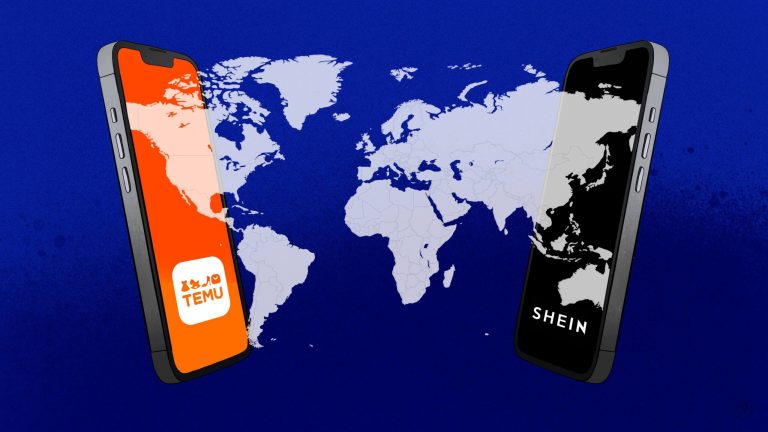
The American shopper is beginning to feel the first sting of President Donald Trump’s aggressive tariff war on Chinese imports, with fast-fashion giants Shein and Temu recording double-digit sales declines in the wake of sweeping tax hikes.
After months of rising tensions and rhetoric over trade imbalances, Trump’s move to eliminate the de minimis rule, long used by Chinese retailers to ship low-value goods to the U.S. duty-free, has begun to bite. The initial casualty: low-cost online shopping, a category dominated by Shein and Temu.
According to transaction data tracked by Bloomberg Second Measure, Shein’s U.S. sales plummeted by 23 percent between April 25 and May 1, compared with the week prior. Temu, owned by Chinese e-commerce giant PDD Holdings, experienced a 17 percent drop in the same period. The downturn came immediately after both companies began raising prices to offset the newly imposed import tariffs.
Register for Tekedia Mini-MBA edition 19 (Feb 9 – May 2, 2026).
Register for Tekedia AI in Business Masterclass.
Join Tekedia Capital Syndicate and co-invest in great global startups.
Register for Tekedia AI Lab.
This marks a sharp reversal from the retail boom seen in March and early April, when price-conscious consumers rushed to stockpile cheap clothing, gadgets, and kitchen items ahead of the expected price surge. Now, the cost of inflation is no longer theoretical—it’s showing up in shopping carts.
The blowback stems from Trump’s dismantling of the de minimis loophole, which previously allowed shipments under $800 to enter the U.S. free of duties. With that lifeline gone, Temu and Shein face an entirely different business calculus. Trump has also hiked tariffs on a range of Chinese imports, some up to 145 percent, drastically reshaping the pricing structure for thousands of products sold online.
Both platforms raised prices from April 25, a move that immediately cooled consumer enthusiasm. Temu, which had based its explosive growth on ultra-low prices for China-made goods, passed on almost all the new tax costs to buyers. In some cases, the price of items doubled overnight.
Bloomberg’s product pricing tracker reveals that Shein’s top 100 beauty and health items more than doubled in price compared to April 15. Toy and game categories rose by over 60 percent, home and kitchen goods saw a 40 percent bump, while women’s clothing increased 10 percent on average.
The effect isn’t limited to consumer pain. Shein’s long-anticipated IPO is now reportedly in doubt. The company is reassessing its U.S. market strategy amid regulatory uncertainty and the impact of tariff-induced operating costs.
Temu’s Strategic Pivot
For Temu, the path forward appears to be a pivot away from Chinese imports entirely. The company is now embracing a “local fulfilment” model, prioritizing inventory sourced from U.S.-based merchants to sidestep import taxes.
Since April 25, Temu has flooded its bestseller pages with goods warehoused domestically. Bloomberg data shows hundreds of items are now marked as “locally shipped” from April 30 onwards. These goods have remained stable in price, shielded from the latest wave of trade penalties.
The shift is dramatic for a company that scaled through cross-border shipping logistics, offering products as low as $1 direct from Chinese factories. Now, it’s effectively rewriting its playbook to survive in a more protectionist U.S. trade environment.
Retailers Caught in the Middle
The pressure isn’t limited to Chinese platforms. Major U.S. retailers like Walmart and Target have yet to raise prices, but behind the scenes, supply chains are straining. Chinese suppliers, many of whom provide private-label goods to American chains, are beginning to balk at absorbing the cost of the tariffs. If they hold the line, prices will inevitably rise for U.S. consumers, or profit margins will erode.
Amazon is already walking a tightrope. After a public complaint from Trump, the company opted not to display tariff charges on its site, a move that underscores the growing unease among retailers. They are now faced with two unattractive options: absorb the cost themselves or push it onto shoppers who are already struggling with high living costs.
U.S. consumer confidence fell to its lowest level in nearly five years in April, according to recent sentiment data. With inflationary pressures expected to intensify in coming months, and more tariffs potentially in the pipeline, the worst may not be over.
What was once a niche debate about import rules has now exploded into a nationwide consumer issue. And with platforms like Shein and Temu serving millions of Americans each month, the fallout from Trump’s tariff hikes is becoming increasingly difficult to ignore.



